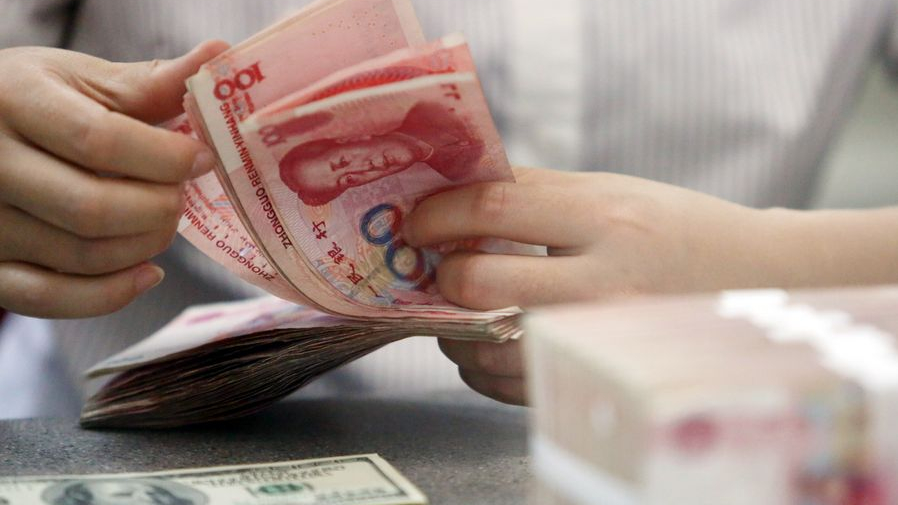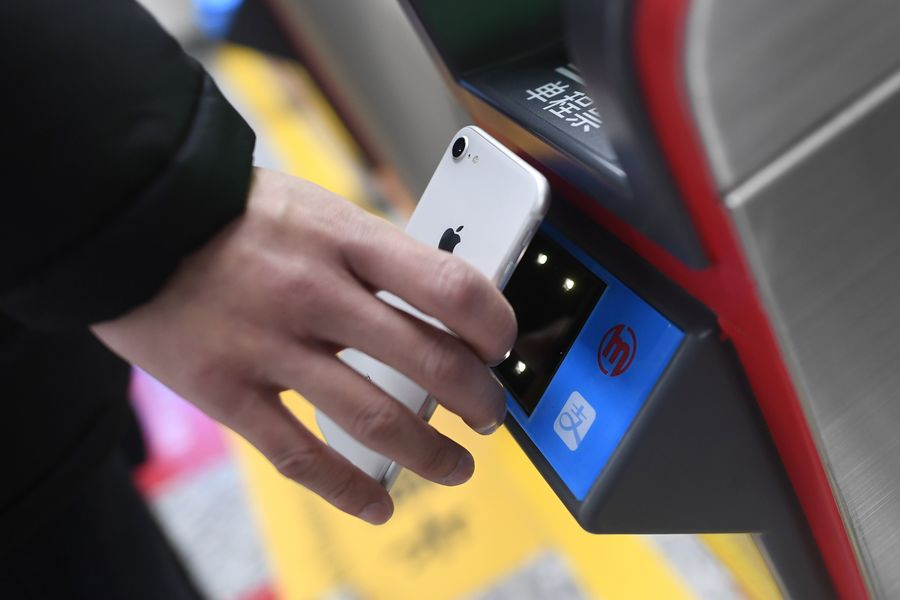
A worker counts Chinese currency Renminbi (RMB) at a bank in Linyi, east China's Shandong Province. /Xinhua
A worker counts Chinese currency Renminbi (RMB) at a bank in Linyi, east China's Shandong Province. /Xinhua
Editor's note: Matteo Giovannini is a finance professional at ICBC in Beijing and a member of the China Task Force at the Italian Ministry of Economic Development. The article reflects the author's opinions and not necessarily the views of CGTN.
China is known worldwide as the land where a great number of inventions have played a decisive role not only for Chinese people but also for the rest of the world. It is often mentioned how ancient China invented papermaking, the compass, gunpowder and printing but it is less known the role that the country played in the creation of money.
The first paper banknotes in history appeared in China during the Tang Dynasty (AD 618-907) in the same period of time when papermaking was invented, and the early use was through privately issued bills of credit or exchange notes and utilized over 500 years before paper money appeared in Europe in the 17th century.
The 21th century is showing a very different landscape due the rapid development of technologies and the digitalization that is transforming paper money into virtual currencies. In this process China has been demonstrating to feel naturally at the forefront, being an almost cashless society, and leading the way for the future of money.
The People's Bank of China (PBOC), the country's central bank, has confirmed that pilot tests have been conducted in Shenzhen, Suzhou, Chengdu and Xiongan with an undeclared plan to launch the government-backed digital currency at the 2022 Winter Olympic Games in Beijing.
The Wall Street Journal has reported that civil servants in a district of Suzhou are now receiving half of their transport subsidy in the digital currency and the funds are sent to them through a smartphone application.
CNBC has disclosed that McDonald's, Starbucks and Subway are among 19 U.S. companies participating in the digital currency trial in Xiongan, a special district in the southwest of Beijing in Hebei Province that is projected to become a new economic center.
Several screenshots of a digital currency wallet app have appeared online showing features such as sending and receiving money, making digital payments easier and faster. According to Caixin, the wallet refers to the Agricultural Bank of China (ABC), part of China's big four state-owned banks, that is involved in the pilot test of the digital yuan.

A passenger scans a QR code of Alipay, a mobile payment app, to take the subway at the Fengtan RoadStation in Hangzhou, capital of east China's Zhejiang Province, Dec. 27, 2017. /Xinhua
A passenger scans a QR code of Alipay, a mobile payment app, to take the subway at the Fengtan RoadStation in Hangzhou, capital of east China's Zhejiang Province, Dec. 27, 2017. /Xinhua
The launch of PBOC's centrally managed sovereign digital currency has demonstrated to have at its core technologies such as blockchain that has the potential to fundamentally change the way businesses are conducted and that is able to improve the financial services industry because of its infrastructure by lowering operating costs, improving efficiency and building a fully trusted system.
The development of blockchain has been in the government agenda since last year when President Xi gave a speech supporting blockchain technology and asking the country to advance in the development in this field.
In this regard, the Industrial and Commercial Bank of China (ICBC) has released this week a detailed white paper on blockchain applications in what is the first of its kind in the banking sector focusing on the beneficial support of the technology in relation to the transformation of payment management and settlement, trade financing and supply chain finance.
COVID-19 has shown an important disadvantage of physical cash that due to its material is a carrier of viruses as studies have demonstrated that the coronavirus can survive on bank notes, coins and ATMs for several days. This historical time represents the right moment for the rollout and transition to a digital currency and both bank institutions and individuals are going to prefer forms of transactions that don't involve a direct contact of cash.
China, which during the early outbreak of COVID-19 instructed commercial banks to disinfect and isolate used banknotes in order to stop the spread of the coronavirus, is well positioned for being a place where most of the transactions have already been conducted digitally for quite a long time using mobile payment apps such as Tencent's WeChat Pay and Alibaba's Alipay.
In this sense, the transition to a fully digital currency becomes a natural step for China and this is facilitated by the cashless ecosystem created over the years by leveraging the high smartphone penetration and the popularity of payment apps released by domestic tech giants, giving the country a clear advantage over competitors such as the U.S., Europe and Japan.
Ancient China revolutionized the nature of commerce and transactions by introducing, well before Europe, paper money that was in use in China when the Venetian traveler Marco Polo visited the country during the 13th century and was so fascinated that he wrote about it extensively in his book.
Modern China is ready to pick up the baton from its ancestors and to write history once again by taking the lead of innovation towards a future of money where China's ambition to become the world leader in technology is accomplished.
(If you want to contribute and have specific expertise, please contact us at opinions@cgtn.com.)